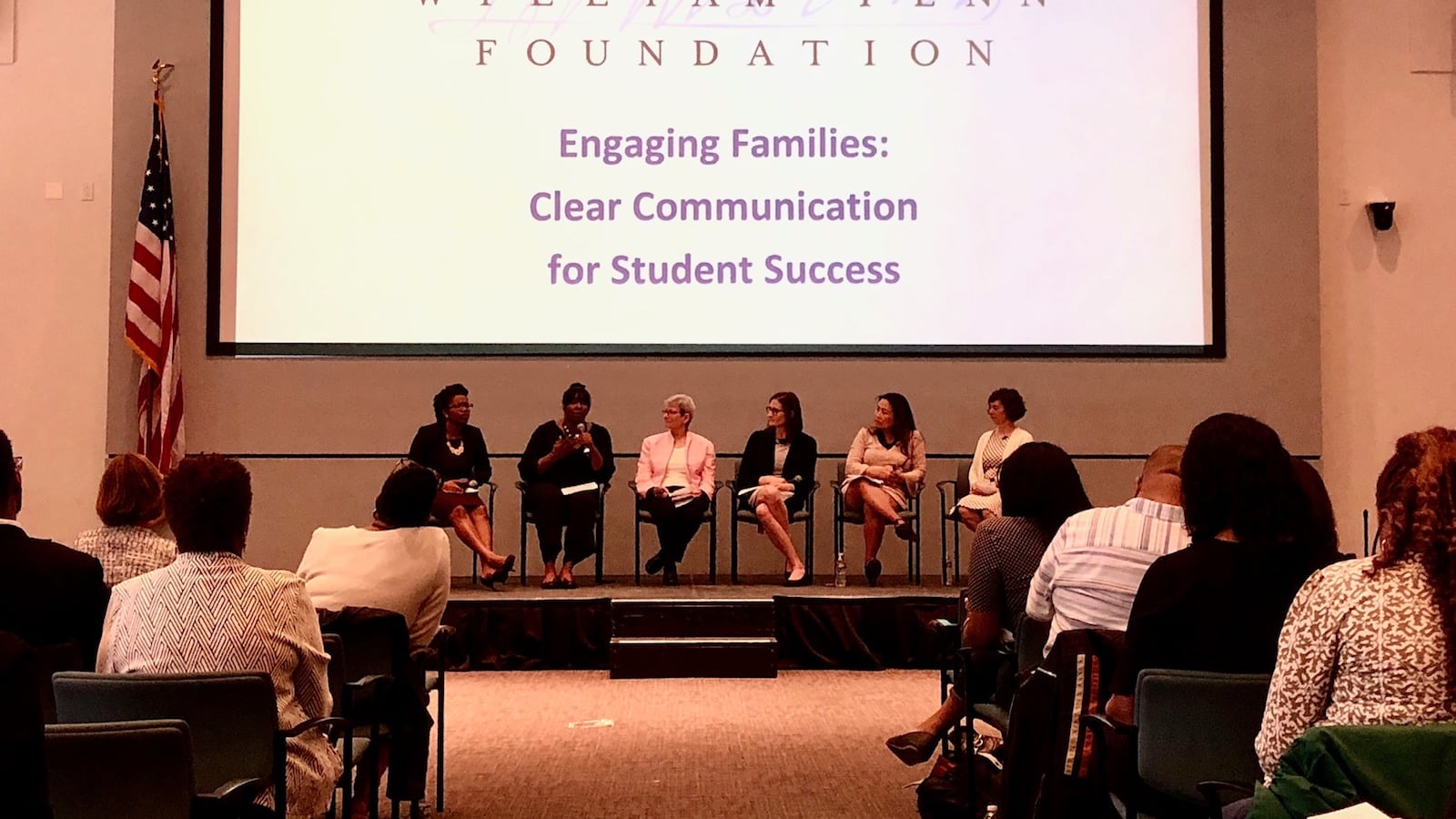This article was originally published in The Notebook. In August 2020, The Notebook became Chalkbeat Philadelphia.
The William Penn Foundation hosted an event Tuesday that was designed to look for ways to improve communication between schools and parents, with the goal of improving students’ education.
About 200 people attended the event, called “Engaging Families: Clear Communication for Student Success,” held at District headquarters. Among other issues, it explored what schools can do to be more transparent and welcoming to families.
“We know that parents and families are children’s most critical teachers, because they’re with them all the time,” said Janet Haas, board chair of the William Penn Foundation. “The partnership between families and schools matters tremendously and helps to advance the learning that children can do in schools.”
Learning Heroes, a national research organization focusing on best practices for communication between schools and families, shared its findings from two reports from 2017 and 2018 based on surveys of middle school parents. They found that parents are more concerned about their child’s happiness and emotional well-being than their academic performance.
David Park, senior vice president of communication and strategy of Learning Heroes, suspects that this is because “parents don’t have a full picture of how well their child is doing.” His reasoning is based on a jarring statistic: Nine out of 10 parents think their child is performing at grade level, but national data indicate that only four in 10 are correct.
Bibb Hubbard, founder and president of Learning Heroes, said report cards are the sole measure for parents. Additional measures, such as reading and math levels, annual student assessments, and the school performance rating aren’t as accessible or easy to understand.
Rachel Honore, a parent of a kindergarten student at Alain Locke Elementary, said her relationships with the school’s teachers help her get a clear picture of her child’s academic performance. She said teachers see that she is involved and they’re willing to meet her “more than halfway.”
“Not all the time – I am not a professional – do I understand the data,” she said. “Me having those follow-up questions and being able to break it down … I feel like I am where I need to be in terms of knowing where my son is at.”
Park said schools should be transparent with parents from the beginning to keep them informed about their child’s performance.
“It’s not about bringing parents along,” said Park. “It’s about engaging them upfront.”
After the Learning Heroes presentation, a panel of five local experts shared their effort to improve parent engagement and answer questions from audience members.
The panelists were Katie Barghaus, executive director of the Penn Child Research Center; Joanna LaCorte, quality advisor, Montgomery Early Learning Centers; Jenna Monley, executive director of the District’s Office of Family and Community Engagement (FACE); Heseung Song, president/CEO, Mighty Engine; and Temwa Wright, parent and School Advisory Council leader. Jenny Bogoni, executive director of Read by 4th, moderated.
Eric Marsh, a parent in the District and a partner in the Fathering Circle, which offers resources and events for fathers, asked what could be done to increase father engagement.
Wright said it is important to stress to fathers that their input is needed and valued.
After the event, Wright said it is important for educators and advocates to seek out new people to avoid “preaching to the choir” about important issues.
“We are often engaging the same people over and over again over the same issues,” she said. “It’s important, as educators, to start asking ourselves that question: Is someone missing from the table? And how do we engage them? So they can also get this powerful information, and that will lead to change.”


